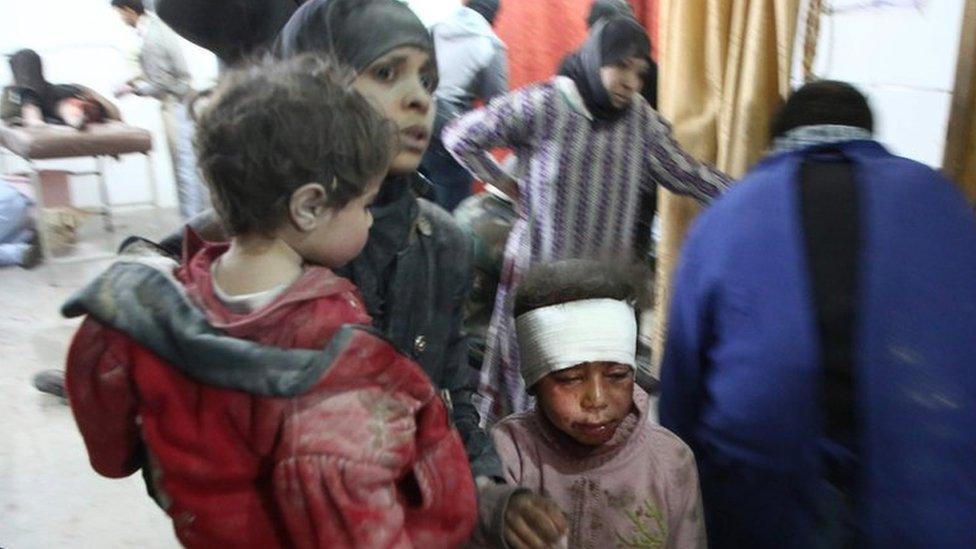Syria war: Fall of Eastern Ghouta pivotal moment for Assad
- Published
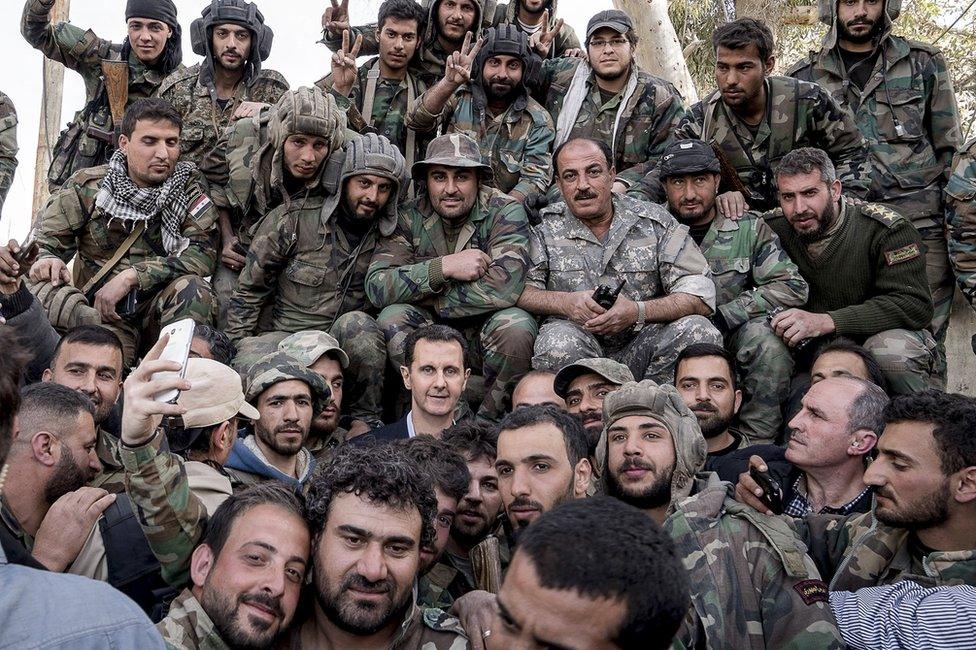
President Assad visited the front line last month in a sign of growing confidence
The recapture of Eastern Ghouta by Syrian government forces means President Bashar al-Assad is now more securely in power than at any time since the start of this seven-year conflict.
President Assad will be exuberant that the rebels have been ousted from their last remaining stronghold close to the capital. He can rest easily in Damascus knowing the city will no longer be hit by rebel mortar-fire.
The fall of Eastern Ghouta is not as significant as the government's recapture of eastern Aleppo in 2016, which changed the course of the war.
But it does cement the growing control of the Syrian regime - heavily backed by Russia and Iran - over large parts of the country.
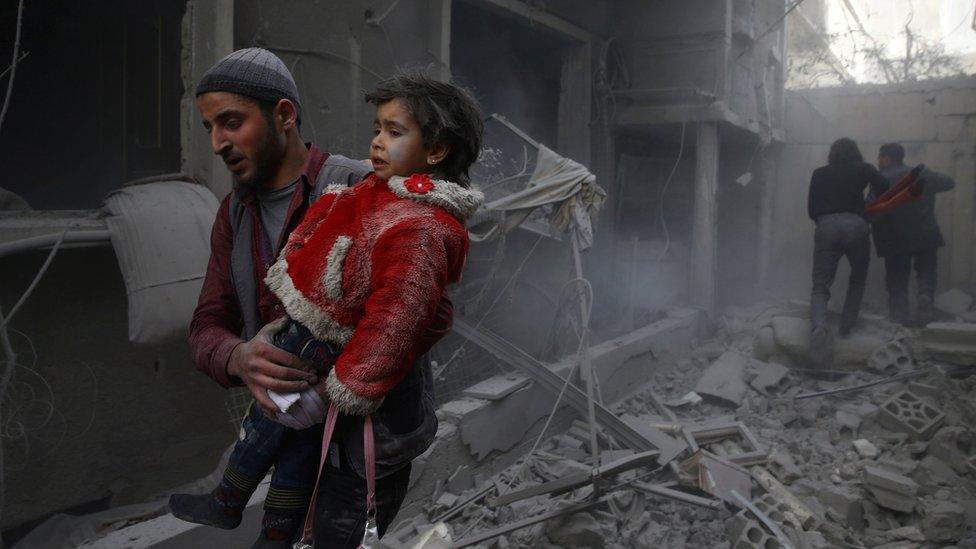
About 1,600 people have been killed since pro-Syrian forces stepped up their offensive
President Assad will also presumably take added satisfaction from the fact the Eastern Ghouta was the scene of the some of the first major protests in the capital against his rule.
The chants of "the people want the fall of the regime" are now a distant echo. The opposition has never been weaker.
Idlib next?
But his latest victory - and that is how President Assad and his supporters will see this - was achieved in a brutal fashion.
It is the latest chapter of suffering in the Syrian conflict. More than 1,700 civilians were reportedly killed in the eight-week offensive.
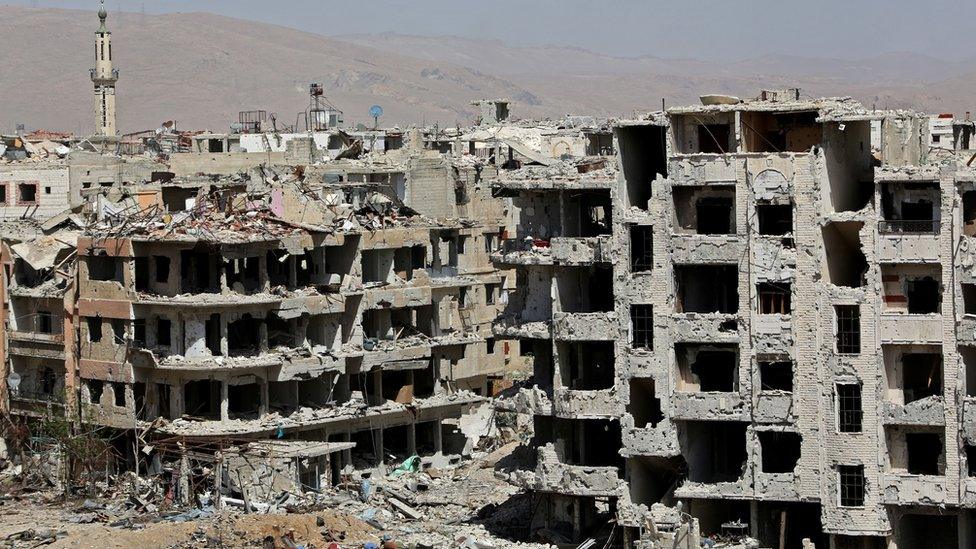
Large parts of Eastern Ghouta have been destroyed by the fighting
Many more civilians are once again on the road in a nation where almost half the country has already been displaced by the fighting.
The United Nations calls the deals that ended the violence in Eastern Ghouta as the "biggest mass evacuation of the Syrian conflict."
The rebel enclave was home to an estimated 400,000 people and tens of thousands of them have left on buses to the northern opposition-controlled province of Idlib.
That corner of the country is being used as a dumping ground for rebels and their families - as well as many civilians - and is already being targeted by pro-regime air strikes.
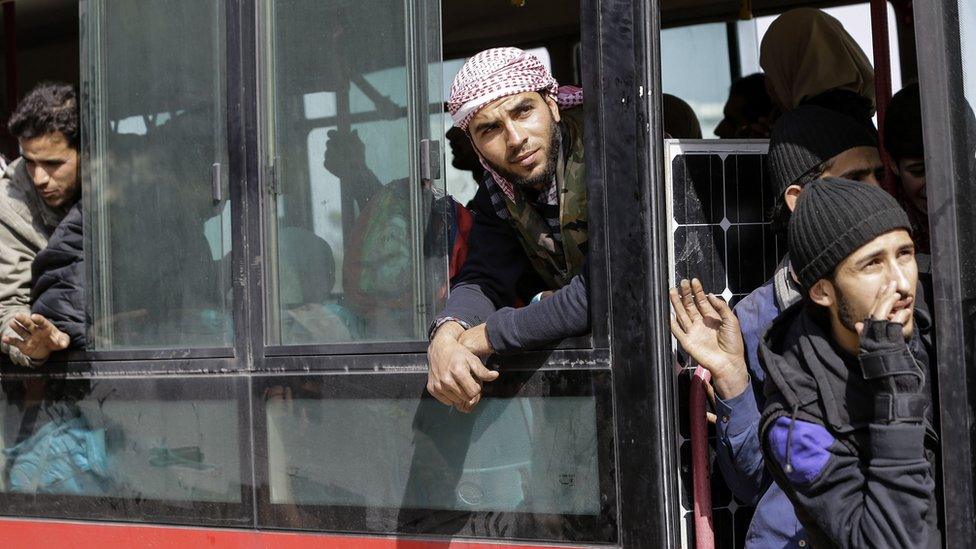
Rebel fighters agreed to be evacuated to rebel-held areas in the north of the country
Some believe it will be the target of the Syrian government's next big offensive.
And this time people may have nowhere to run.
Powers hold sway
Many in government-controlled areas now believe the conflict is wrapping up and they are preparing to rebuild the shattered country and its economy.
But if anything, the fall of Eastern Ghouta revealed the complexity of the war - and how Syria's fate will be decided not by the government or rebels but by outside players.
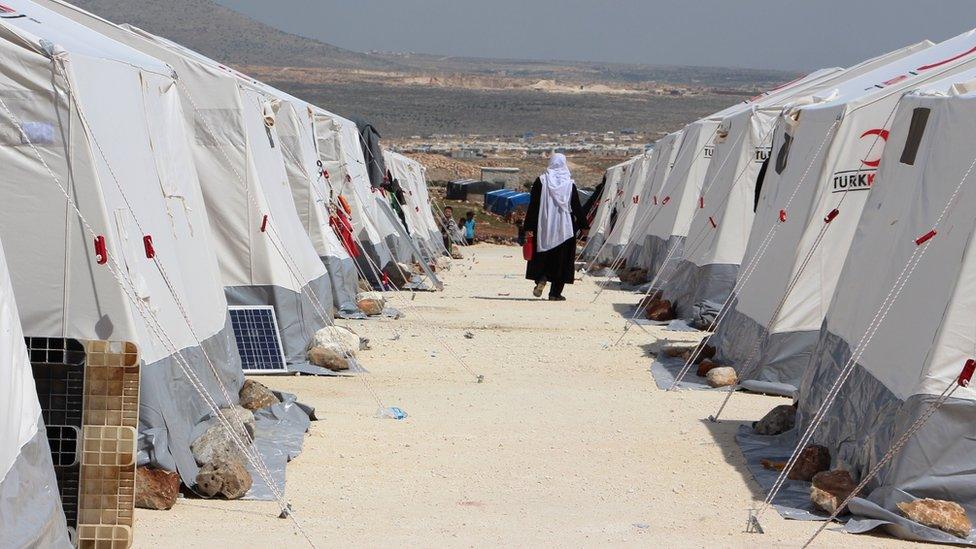
Thousands of civilians have been displaced by the fighting in Eastern Ghouta
Russia, Iran, Turkey and the United States are all pursuing their own agendas in Syria. Both Russia and Iran want to maintain their influence over the Syrian government and control of their bases in the country when the war is over.
During the Eastern Ghouta campaign, Russia played a key role in the bombardment but also as the main mediator in bringing the violence to an end.
It was Russian soldiers who organised the evacuations of civilians and, significantly, it was Moscow - and not the Syrian government - that brokered the deals that allowed the major rebel factions to leave.
Elsewhere in the country, Turkey, alarmed by the growth of Kurdish influence in Syria, recently seized the north-western Afrin region controlled by the Syrian Kurdish YPG militia.
Nearby, the US continues to support the Kurdish-dominated Syrian Democratic Forces in their continuing operation against the Islamic State group.
But whether that alliance will endure is not clear. US President Donald Trump recently said he wanted to pull American forces out of Syria as soon possible. But this chunk of territory remains the largest outside the Syrian government's control.
After Eastern Ghouta, an emboldened President Assad will need to take all this into consideration. He may well want to push on and recover territory but he does not have much space to manoeuvre. He risks a collision with major foreign powers, which will bring fresh dangers.

- Published2 May 2023

- Published29 March 2018
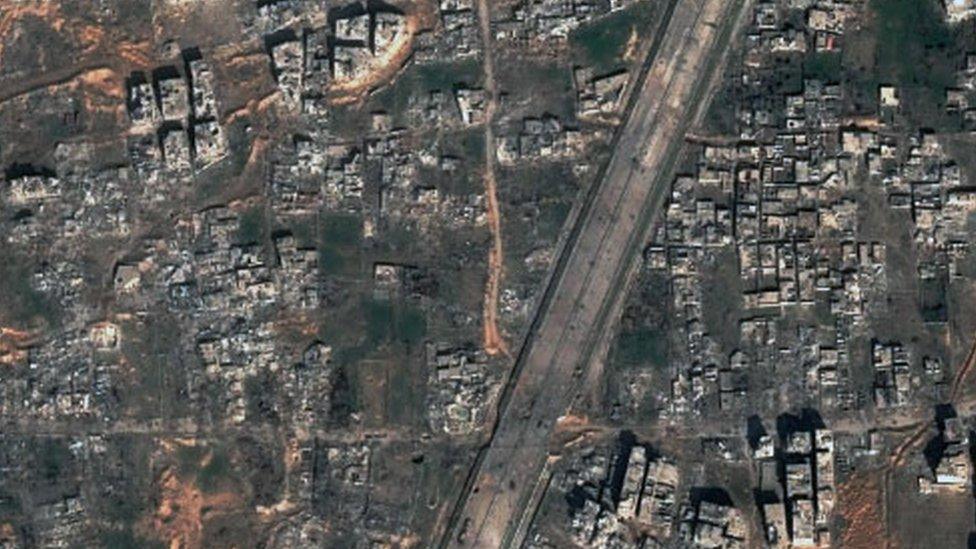
- Published28 March 2018
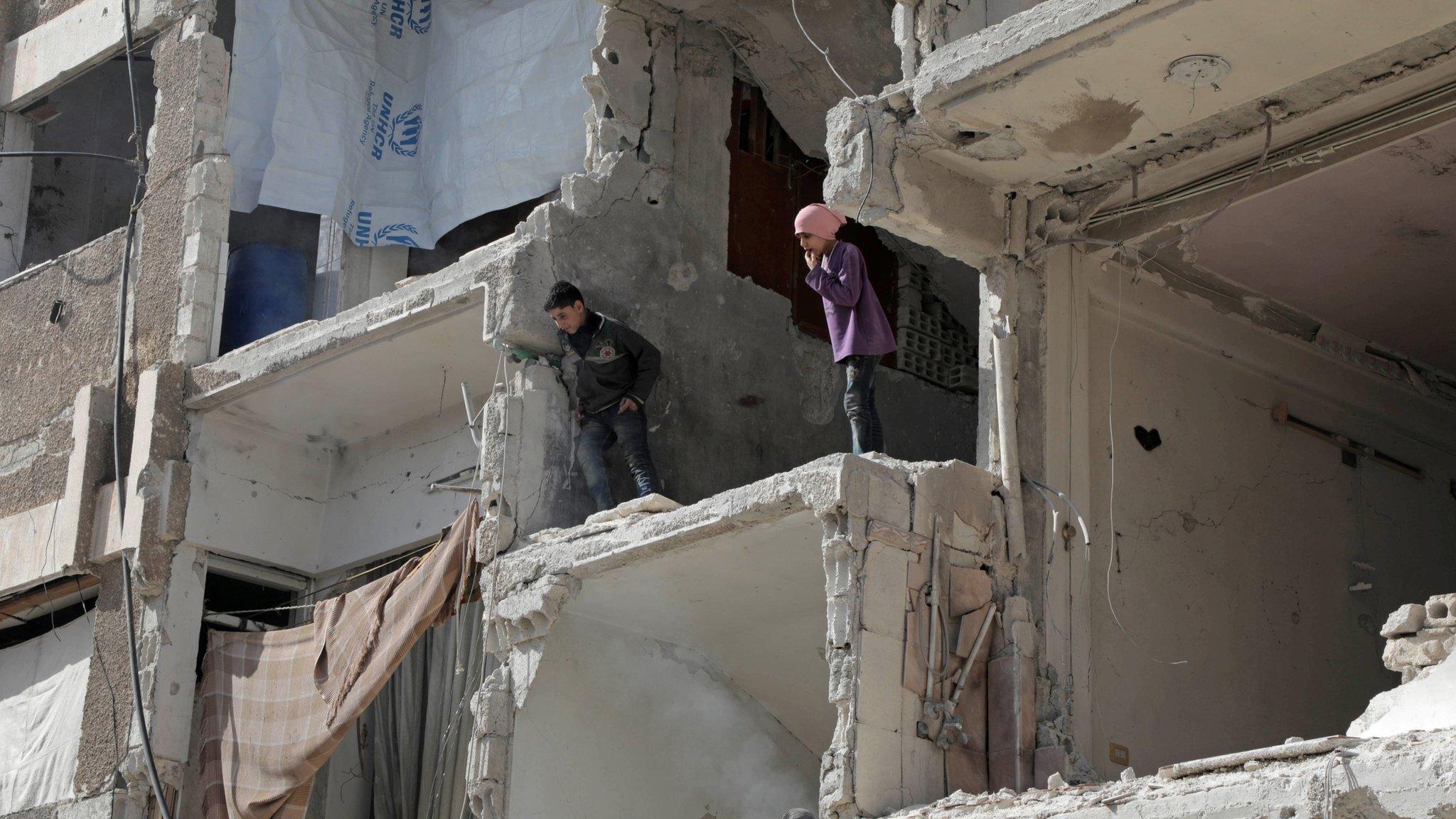
- Published28 March 2018
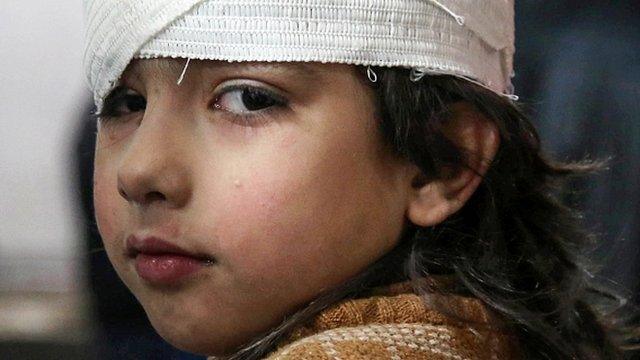
- Published23 March 2018
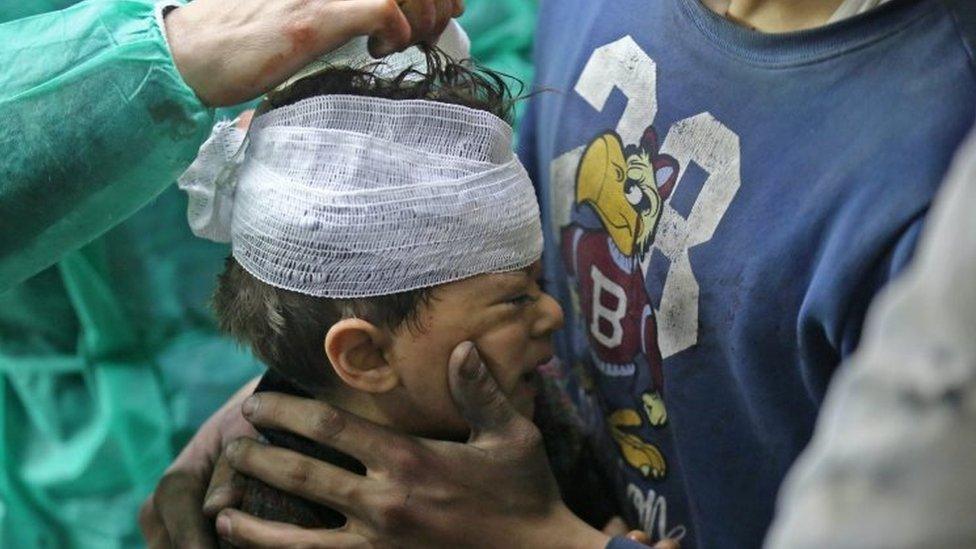
- Published22 March 2018
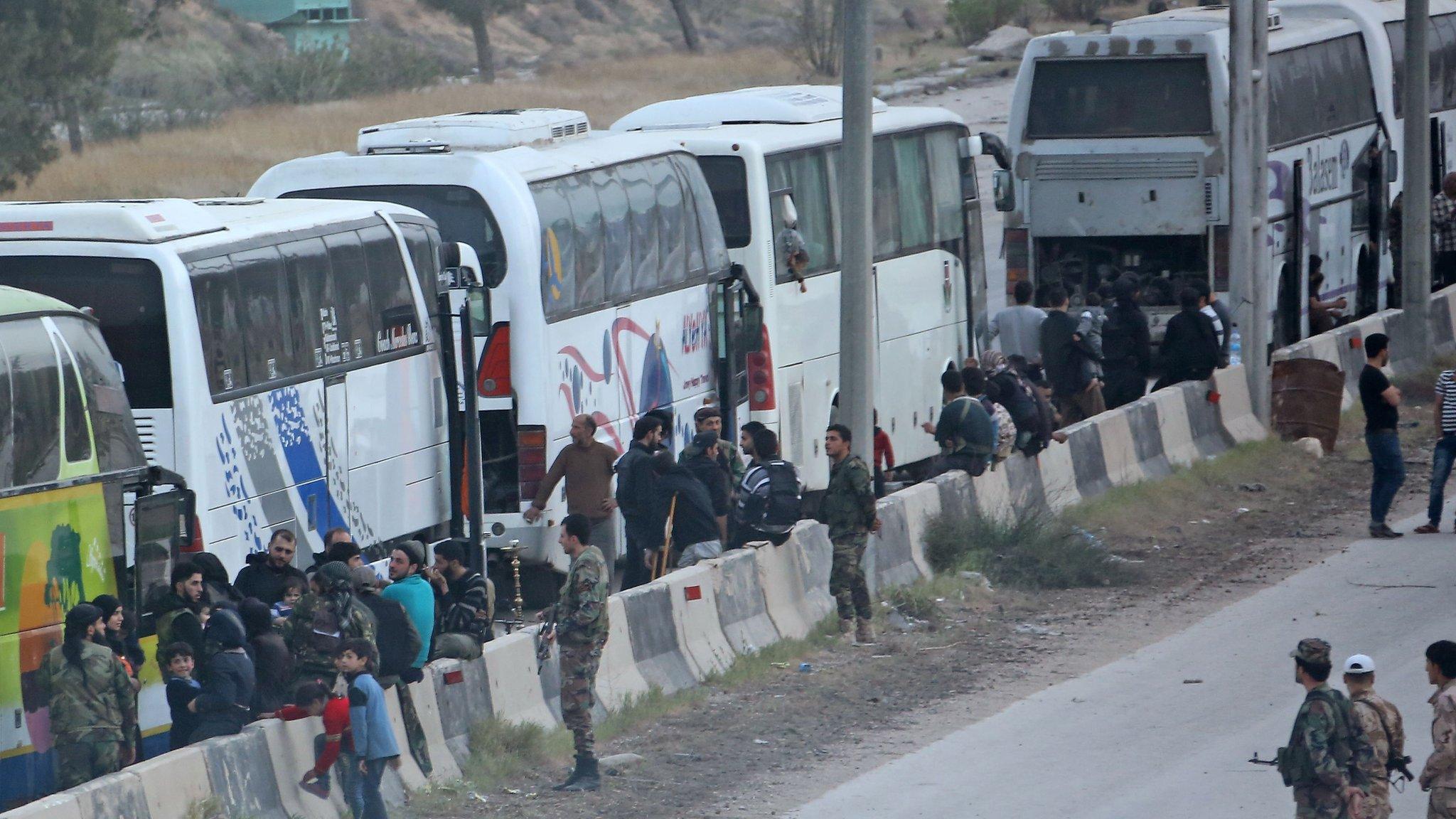
- Published17 March 2018
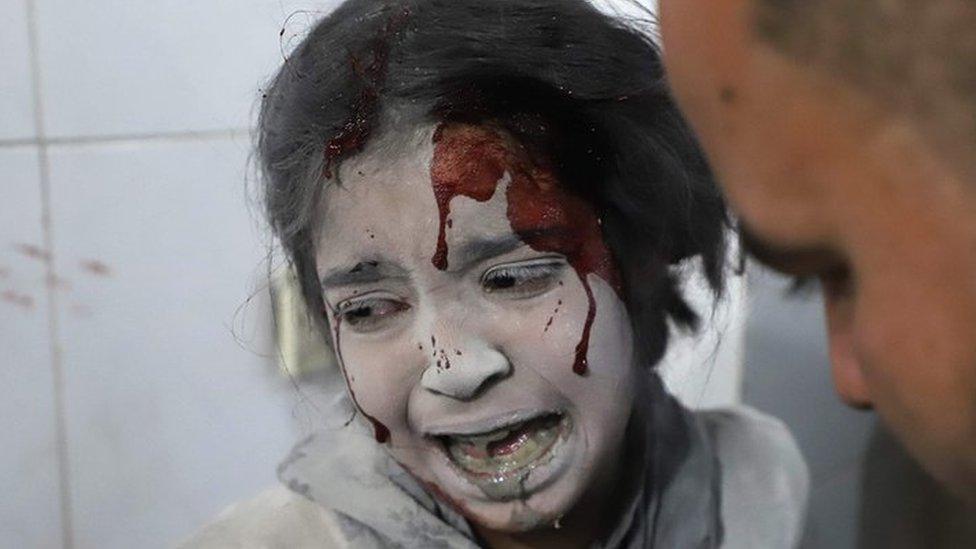
- Published16 March 2018
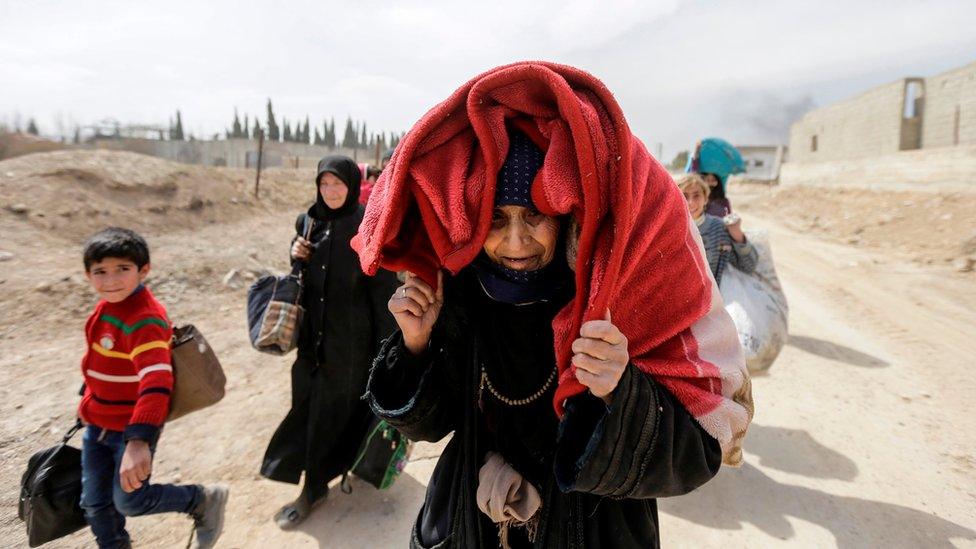
- Published15 March 2018
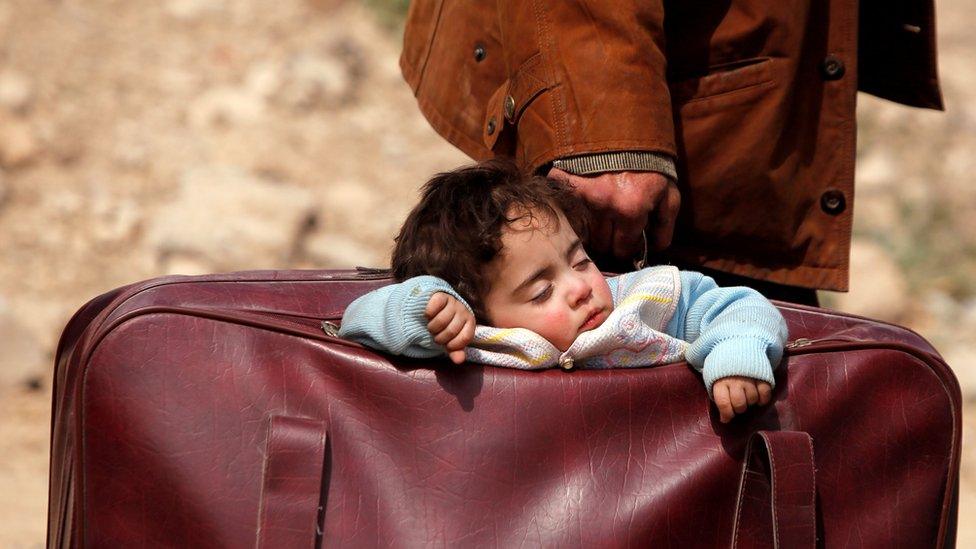
- Published22 February 2018
